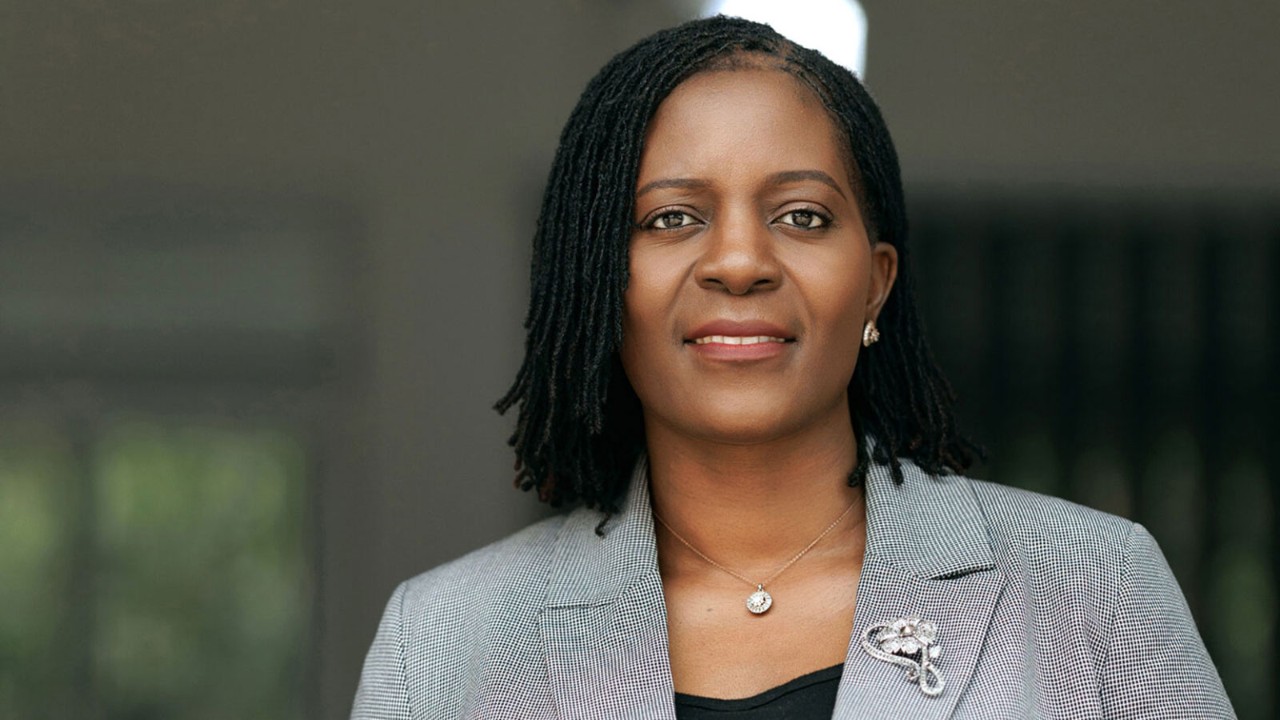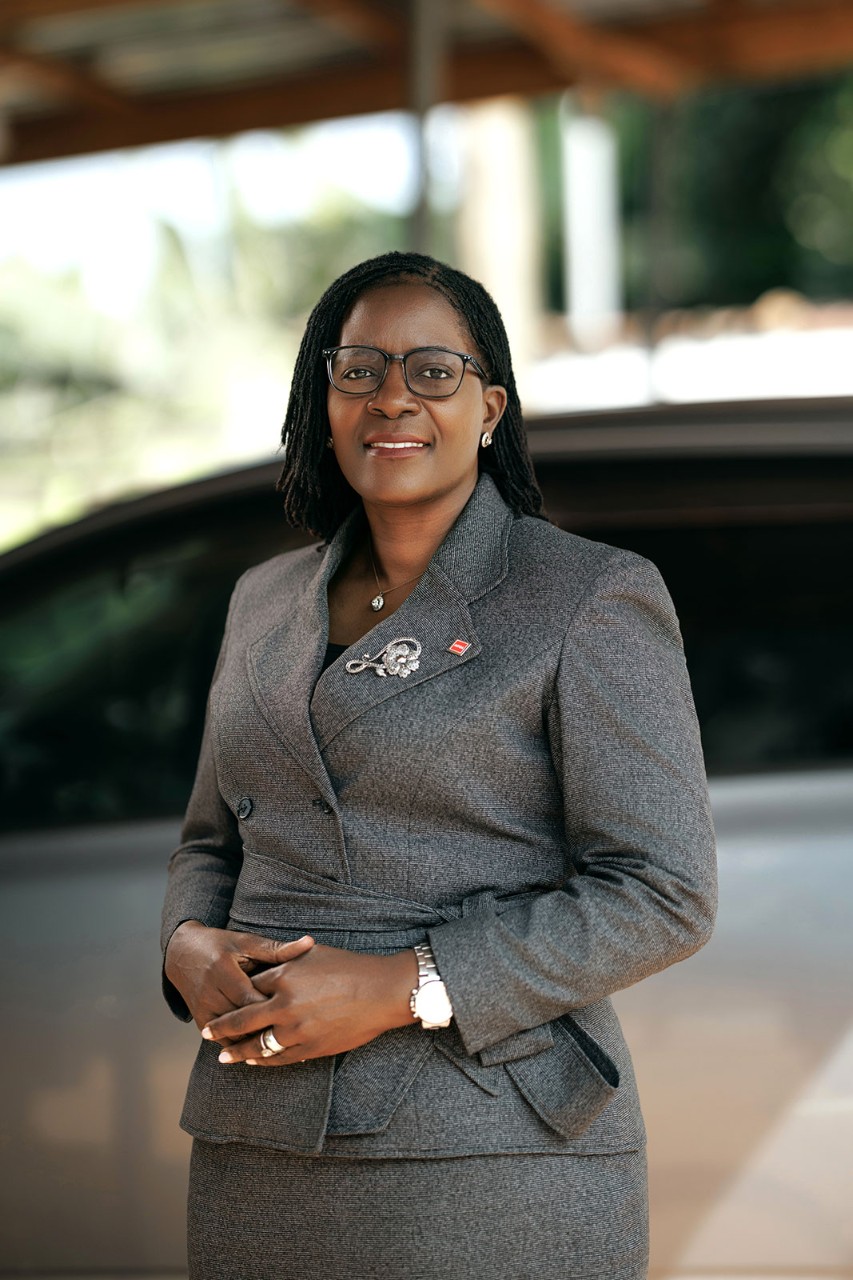
Uganda’s small businesses are the engine of the country’s economy, accounting for more than 90% of the private sector and vital for the nation’s employment. But many of them fail, for a variety of reasons. In 2008, the worldwide recession meant that many small enterprises, including not-for-profit organisations that were providing socially valuable services and products, struggled to access financing and collapsed. But someone was watching and resolved to make a difference.
Joyce Tamale FCCA is founder and CEO of Capital Solutions, an organisation that provides funding, capacity building and advice to aspiring social enterprises and entrepreneurs in Uganda. It is an initiative whose origins lay in Tamale’s MBA thesis, which she completed as the recession wreaked havoc on Uganda’s small businesses.
‘Most small NGOs don’t think about how the enterprise is going to live tomorrow’
‘Capital Solutions has been a very passionate journey,’ says Tamale. ‘While I was studying for my MBA, I picked one of these struggling NGOs to use as a case study for my thesis. The idea was to look at ways of building financially sustainable NGOs; my lecturers loved it, and one of them suggested that I could make a real impact by starting a company to follow through with these ideas. I registered the company in October 2008.’
Shifting mindsets
Tamale’s thesis identified the key challenges that were contributing to the failure of many small social enterprises: a lack of business acumen among those setting them up, poor access to start-up funding, few networking and marketing opportunities, and an unhelpful mindset.
‘The majority of small NGOs start with the mindset that someone, somewhere, has money and that if they write a proposal, they will give endless amounts of that money to them,’ she says. ‘They know they want to create impact with what they are doing, but they don’t think about how the enterprise is going to live tomorrow.’
The aim of Capital Solutions is to address these challenges and help to build the capacity of social entrepreneurs (particularly women and young people) to create sustainable enterprises that work with low-income communities in Uganda.
‘My successful earlier career was the pillar for my social enterprise work’

Capital Solutions’ operations would not begin in earnest until some years later, although it was always on Tamale’s mind as she forged an impressive career in the healthcare sector. In 2014, she was appointed managing director of the Uganda Health Marketing Group, which works in partnership with public and private institutions to raise awareness of and demand for healthcare in Uganda.
‘The fact that I built a successful career within a short time was the pillar for my success in my social enterprise work,’ she says. ‘From when I first began to study with ACCA, the qualification has put me ahead of my peers. As an ACCA member you have very strong social capital; the brand brings respect to the table.’
CV
2019
Co-founder and CEO, Capital Solutions, Kampala
2018
Board member, Humentum; also board member of KCB Bank Uganda and chair of Uganda Re-insurance Company (both since 2024)
2009
Director of finance, investment and administration, then managing director, Uganda Health Marketing Group, Kampala
2002
Deputy executive director and finance manager, Eastern African Sub Regional Support Initiative for the Advancement of Women
2000
Accountant, Save The Children
Making an impact
From an early age, Tamale knew that she wanted to make an impact in the communities around her. ‘That’s what drove me towards the NGO sector,’ she says. ‘In December 2018 my entrepreneurial spirit set in, and I decided to become the full time CEO of Capital Solutions.’
For the first year, Tamale took on virtually every key role in the organisation, from finance and HR to communications, as well as setting up a board of directors and forming the organisation’s policies. Today, Capital Solutions has 35 employees (a combination of full-time and associates) and has indirectly created a further 325 jobs.
Three distinct subsidiaries directly address the needs of start-up NGOs under the Capital Solutions umbrella: the Social Entrepreneurship Forum, a networking platform where entrepreneurs can spread the word about their organisations; the Social Investment Fund, which provides capital funding and collateral-free, low-interest loans to start up not-for-profits; and the Social Business Accelerator Programme, a six-month capacity-building course for budding entrepreneurs. Capital Solutions also provides business advisory services to start-ups and young NGOs.
So far, the organisation has trained and mentored the leaders of 625 social enterprises in Uganda, 80% of which are still thriving. The organisation’s current plan, which runs to 2028, intends to reach 1,350 social enterprises across Africa, 70% of which will be in Uganda. Recent graduates of the Social Business Accelerator programme include the founder of a not-for-profit that provides counselling to teenagers, and the director of a company making affordable, customised African clothing.
Boundless energy
Its CEO, meanwhile, has seemingly boundless energy. Tamale is chair of Uganda Reinsurance and sits on the board of several organisations including KCB Bank and Humentum. She is also chair emeritus of the Forum for Women in Democracy, and a member of the board of trustees for the International Financial Reporting for Non-Profit Organisations (IFR4NPO) initiative. Alongside all this, she is also mother to three children, the youngest of whom is 12. ‘One of the things I’ve learned and treasure as an accountant is a mindset of being extremely organised,’ she says.
Tamale is the strongest possible advocate for better support for all SMEs in Uganda. The Ugandan Government’s proposal that SMEs established after 1 July this year will be exempt from income tax for three years, she says, is ‘a huge win’. She is also encouraged that others are beginning to follow the lead of Capital Solutions. ‘Since we started, we are seeing some big companies begin to set up hubs that are supporting SMEs,’ she says with satisfaction. ‘The ecosystem is catching up.’


